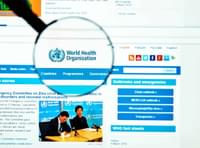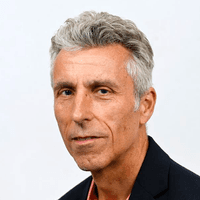
The case for defunding the WHO
Bill Wirtz believes there is no need for taxpayers to be continuously patronised by WHO health experts. It's time to defund the WHO.
The World Health Organization (WHO) is increasingly focussing on combating non-communicable diseases (NCD). In the process, it agitates governments to crack down on lifestyle freedoms. With the track record of the organisation itself, and its mind-bogglingly wasteful spending, there is a case for defunding it.
In the programme budget 2018-2019, the health-promoting body of the United Nations intends on spending a total of $350 million (£266 million) on combating diseases that were not transmitted from the outside world or between humans. Despite the fact that mental health problems are included in the category of NCDs, the focus is on self-inflicted complications, such as diabetes or preventable cancers.
For this reason, the WHO operates on seven key frameworks:
– the Global action plan for the prevention and control of noncommunicable diseases 2013–2020
– the WHO Framework Convention on Tobacco Control (FCTC)
– the Addis Ababa Action Agenda
– the Global Strategy on Diet, Physical Activity and Health
– WHO recommendations on marketing of foods and non-alcoholic beverages to children
– the recommendations of the Commission on Ending Childhood Obesity
– the global strategy to reduce the harmful use of alcohol
Especially those frameworks on tobacco control and marketing of foods are purely paternalistic. Here, the World Health Organization does nothing but come up with recommendations for national governments to reduce the consumption of products which are said to be at the origin of NCDs, most notably alcohol, sugar, and tobacco, and suggests to restrict the marketing freedom of companies.
The conditions under which new rules are being dreamt up are certainly dreamy on their own. Take the example of an international tobacco control experts meeting in April this year, held on the Seychelles. During this three-day workshop, experts from South Africa, Mauritius, Kenya, Uganda and Liberia spent their time in a luxury beach hotel (offering offsite water sports, badminton lawns, and an ocean deck bar), in order to draw inspiration from the example of the Seychelles. However, the government's own website says:
"Seychelles has been selected as the venue for the Regional WHO workshop as it has comprehensive tobacco control laws that are in the process of being enforced, serving as best practices and learning environment for other countries. In the past, the country has also contributed to the development of the Guide on Enforcement and Compliance."
In short, the Seychelles have absolutely no experience in tobacco control, with no past-enforcement data at all. The meeting was nothing but a holiday trip for a couple of health diplomats.
In other cases, new health measures are endorsed on panels by the WHO's global ambassador for noncommunicable diseases, former New York City mayor and billionaire Michael Bloomberg. Bloomberg has made a name for himself as an advocate of the Nanny State: during his time in office he was well-known for limiting the size of cups at the soda dispensaries at fast food chains.
The group "Bloomberg Philanthropies" announced earlier this year that a task force of 14 will make precise proposals to regulate people's personal behaviour. This group includes, amongst others, the Norwegian Minister of Health, the Scottish First Minister Nicola Sturgeon, or Tabaré Vázquez, who is the president of Uruguay.
"Eighty percent of NCD deaths occur in low- and middle-income countries, straining health care systems, contributing to poverty and posing a major barrier to development," says the group in a press release. The goal: advocating for more stringent tax policies on unhealthy behaviour, including tobacco, alcohol, and sugary drinks.
Bloomberg has also responded to the criticism of sugar taxes being regressive. In an answer at the IMF, Bloomberg said this:
https://www.youtube.com/watch?v=Mkf_Wc_WaCU
There you have it: Bloomberg couldn't care less about the choices of low-income households, and so does the WHO.
And while the world has actual diseases to fight, the WHO seems more occupied with your smoking habits. Former WHO Director-General Margaret Chan spoke at the sixth Conference of the Parties of the Framework Convention on Tobacco Control (FCTC COP6) in Moscow in 2014 (during the Ebola outbreak) and declared fighting smoking as the biggest priority for the WHO. Now, it is clear that nobody attempts to minimise the effects of smoking tobacco, but between cigarettes and Ebola, it seems clear which dossier should be given more attention. And yet, the WHO utterly failed in 2014.
As Reuters reported in 2015, a specialist panel convened by Harvard's Global Health Institute (HGHI) and the London School of Hygiene & Tropical Medicine (LSHTM) concluded that immense human suffering went "largely unchecked" by institutional responders. It turned out that WHO officials were aware of the outbreak in spring, yet it took until August for the World Health Organization to declare it a public health emergency and take action. This is months after the broader public was already made aware of the problems with the epidemic.
The WHO's disease classification system ICD is also continuously under fire. It so happens that the WHO was criticised, for instance, for declaring strokes a circular instead of a brain disease, naming "gaming disorder" as a mental illness (despite a 2017 UNICEF report warning that: "Careless use of addiction terminology downplays the very real consequences of the behavior for those who are seriously affected, while overstating the risk of harm for those who at times engage in somewhat excessive, but ultimately not harmful, use of digital technology"). In fact, the ICD regularly sparks debates in the scientific community, and throws patient care under the bus. Lest we forget, the WHO only declassified homosexuality as a mental illness in 1992, the same year that the Vatican recognised that Galileo was right. Well, we all need time, don't we?
But most striking of all is the World Health Organization's incredible wasteful spending.
The WHO's travel expenses for one year are $200 million (£150 million) according to the Washington Post, which means that every single staffer racks up a total of $28,500 (£21,500) per year. In March of 2017, the Associated Press reported that the World Health Organization spent more for the travel of 7,000 staffers than it did for countering malaria, tuberculosis, fighting AIDS and hepatitis, and on tackling mental health and substance abuse. The agency is simultaneously demanding its budget be increased as it doesn't seem to have enough money to fulfil its healthcare-providing role.
It is hardly imaginable that this sort of work could not be achieved through private charities. There is no need for taxpayers to be continuously patronised by WHO health experts, which are questioned by their peers, and living rich off the money of those who are now asked to pay even more for basic goods. It's time to defund the WHO.











